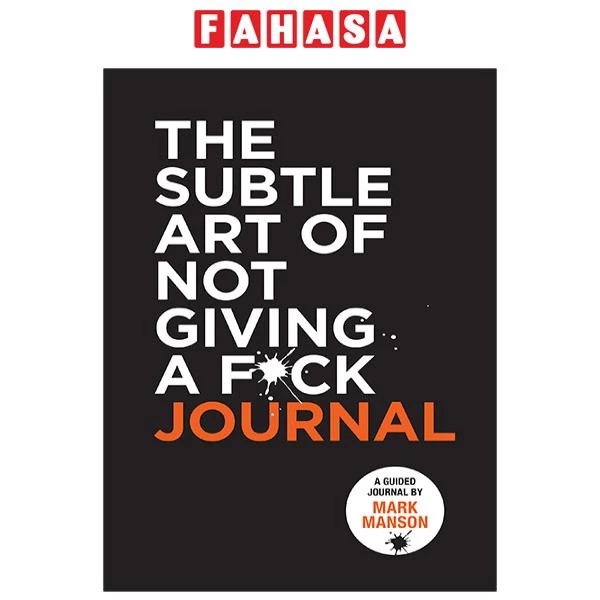Chủ nghĩa cộng hòa

| Một phần của loạt bài về Chính trị |
| Chính trị đảng phái |
|---|
Chủ nghĩa cộng hòa (tiếng Anh: Republicanism) là một hệ tư tưởng chính trị tập trung vào quyền công dân trong một quốc gia được tổ chức như một nước cộng hòa.[3][4][5][6] Về mặt lịch sử, nó nhấn mạnh ý tưởng tự trị và bao gồm từ quy tắc của thiểu số đại diện hoặc đầu sỏ đến chủ quyền nhân dân. Nó đã có những định nghĩa và cách giải thích khác nhau, và các cách này khác nhau đáng kể dựa trên bối cảnh lịch sử và phương pháp luận.
Chủ nghĩa cộng hòa cũng có thể đề cập đến cách tiếp cận khoa học phi ý thức hệ đối với chính trị và quản trị. Như nhà tư tưởng cộng hòa và tổng thống thứ hai của Hoa Kỳ John Adams phát biểu trong phần giới thiệu cuốn sách nổi tiếng A Defense of the Constitutions of Government of the United States of America (Bảo vệ Hiến pháp của Chính phủ Hợp chủng quốc Hoa Kỳ),[7] "khoa học về chính trị là khoa học về hạnh phúc xã hội" và một nền cộng hòa là hình thức chính phủ đạt được khi khoa học về chính trị được áp dụng một cách thích hợp để tạo ra một chính phủ được thiết kế hợp lý. Thay vì mang tính ý thức hệ, cách tiếp cận này tập trung vào việc áp dụng một phương pháp khoa học cho các vấn đề quản trị thông qua nghiên cứu nghiêm ngặt và áp dụng kinh nghiệm và thử nghiệm trong quá khứ trong quản trị. Đây là cách tiếp cận có thể được mô tả tốt nhất để các nhà tư tưởng cộng hòa áp dụng, như Niccolò Machiavelli (được thể hiện rõ trong Discourses on Livy), John Adams và James Madison.
Từ "republic" (cộng hòa) bắt nguồn từ cụm danh từ Latinh res publica (công sản), dùng để chỉ hệ thống chính quyền xuất hiện vào thế kỷ 6 TCN, sau khi Lucius Junius Brutus và Collatinus trục xuất các vị vua La Mã.[8][9]
Hình thức chính phủ này ở nhà nước La Mã đã sụp đổ vào cuối thế kỷ 1 TCN, nhường chỗ cho chế độ quân chủ về hình thức, nếu không muốn nói là trên danh nghĩa. Các nền cộng hòa được tái lập sau đó, chẳng hạn như Firenze thời Phục hưng hay nước Anh thời kỳ đầu hiện đại. Quan điểm về một nước cộng hòa đã trở thành một tư tưởng mạnh mẽ ở các thuộc địa Bắc Mỹ của Anh, nơi nó góp phần vào cuộc Cách mạng Mỹ. Ở châu Âu, nó đã đạt được ảnh hưởng to lớn thông qua Cách mạng Pháp và thông qua Đệ Nhất Cộng hòa Pháp (1792–1804).
Tham khảo
[sửa | sửa mã nguồn]- ^ "Edustajamatrikkeli". Eduskunta. Bản gốc lưu trữ ngày 12 tháng 2 năm 2012.
- ^ Mononen, Juha (ngày 2 tháng 2 năm 2009). "War or Peace for Finland? Neoclassical Realist Case Study of Finnish Foreign Policy in the Context of the Anti-Bolshevik Intervention in Russia 1918–1920". University of Tampere. Truy cập ngày 25 tháng 8 năm 2020.
- ^ Hammersley, Rachel (2020). Republicanism : an introduction. Cambridge, UK. ISBN 978-1-5095-1341-3. OCLC 1145090006.
{{Chú thích sách}}: Quản lý CS1: địa điểm thiếu nhà xuất bản (liên kết) - ^ Sellers, Mortimer NS (2015). "Republicanism: Philosophical Aspects". International Encyclopedia of the Social & Behavioral Sciences (Second Edition). tr. 477–482. doi:10.1016/B978-0-08-097086-8.63076-3. ISBN 9780080970875.
- ^ Dagger, Richard (2011). Klosko, George (biên tập). "Republicanism". The Oxford Handbook of the History of Political Philosophy. tr. 701–711. doi:10.1093/oxfordhb/9780199238804.003.0043.
- ^ Bellamy, Richard (2022). "Republicanism: Non-domination and the free state". Routledge international handbook of contemporary social and political theory . London New York: Routledge. doi:10.4324/9781003111399-12. ISBN 9781003111399. S2CID 242874484.
- ^ "The Works of John Adams, 10 vols". oll.libertyfund.org – Online Library of Liberty. Truy cập ngày 10 tháng 1 năm 2019.
- ^ Mortimer N. S. Sellers. American Republicanism: Roman Ideology in the United States Constitution. (New York University Press, 1994. p. 71.)
- ^ Fronda, Michael P. (2015). "Why Roman Republicanism? Its Emergence and Nature in Context". A companion to Greek democracy and the Roman republic. Chichester: Wiley Blackwell. tr. 44–64. doi:10.1002/9781118878347.ch3. ISBN 9781118878347.
Đọc thêm
[sửa | sửa mã nguồn]Tài liệu chung
[sửa | sửa mã nguồn]- Becker, Peter, Jürgen Heideking and James A. Henretta, eds. Republicanism and Liberalism in America and the German States, 1750–1850. Cambridge University Press. 2002.
- Deudney, Daniel. 2007. Bounding Power: Republican Security Theory from the Polis to the Global Village. Princeton University Press.
- Everdell, William R., "From State to Free-State: The Meaning of the word Republic from Jean Bodin to John Adams" 7th International Society for Eighteenth-Century Studies conference, Budapest, 7/31/87; Valley Forge Journal (June 1991); http://dhm.pdp6.org/archives/wre-republics.html
- Hammersley, Rachel, Republicanism an introduction (2020) Cambridge: Polity
- Pocock, J. G. A. The Machiavellian Moment (1975).
- Pocock, J. G. A. "The Machiavellian Moment Revisited: a Study in History and Ideology.: Journal of Modern History 1981 53(1): 49–72. ISSN 0022-2801 Fulltext: in Jstor. Summary of Pocock's influential ideas that traces the Machiavellian belief in and emphasis upon Greco-Roman ideals of unspecialized civic virtue and liberty from 15th century Florence through 17th century England and Scotland to 18th century America. Pocock argues that thinkers who shared these ideals tended to believe that the function of property was to maintain an individual's independence as a precondition of his virtue. Therefore they were disposed to attack the new commercial and financial regime that was beginning to develop.
- Pettit, Philip. Republicanism: A Theory of Freedom and Government Oxford UP, 1997, ISBN 0198290837.
- Robbins, Caroline, The Eighteenth-Century Commonwealthman Studies in the Transmission, Development, and Circumstance of English Liberal Thought from the Restoration of Charles II Until the War with the Thirteen Colonies (1959)
- Snyder, R. Claire. Citizen-Soldiers and Manly Warriors: Military Service and Gender in the Civic Republican Tradition (1999) ISBN 978-0847694440 online review.
- Viroli, Maurizio. Republicanism (2002), New York, Hill and Wang.[thiếu ISBN]
Châu Âu
[sửa | sửa mã nguồn]- Berenson, Edward, et al. eds. The French Republic: History, Values, Debates (2011) essays by 38 scholars from France, Britain and US covering topics since the 1790s
- Bock, Gisela; Skinner, Quentin; and Viroli, Maurizio, ed. Machiavelli and Republicanism. Cambridge U. Press, 1990. 316 pp.
- Brugger, Bill. Republican Theory in Political Thought: Virtuous or Virtual? St. Martin's Press, 1999.
- Castiglione, Dario. "Republicanism and its Legacy," European Journal of Political Theory (2005) v 4 #4 pp. 453–65. online version.
- Everdell, William R., The End of Kings: A History of Republics and Republicans, NY: The Free Press, 1983; 2nd ed., Chicago: University of Chicago Press, 2000 (condensed at http://dhm.pdp6.org/archives/wre-republics.html).
- Fink, Zera. The Classical Republicans: An Essay in the Recovery of a Pattern of Thought in Seventeenth-Century England. Northwestern University Press, 1962.
- Foote, Geoffrey. The Republican Transformation of Modern British Politics Palgrave Macmillan, 2006.
- Martin van Gelderen & Quentin Skinner, eds., Republicanism: A Shared European Heritage, v 1: Republicanism and Constitutionalism in Early Modern Europe; vol 2: The Value of Republicanism in Early Modern Europe Cambridge U.P., 2002.
- Haakonssen, Knud. "Republicanism." A Companion to Contemporary Political Philosophy. Robert E. Goodin and Philip Pettit. eds. Blackwell, 1995.
- Kramnick, Isaac. Republicanism and Bourgeois Radicalism: Political Ideology in Late Eighteenth-Century England and America. Cornell University Press, 1990.
- Mark McKenna, The Traditions of Australian Republicanism (1996)
- Maynor, John W. Republicanism in the Modern World. Cambridge: Polity, 2003.
- Moggach, Douglas. "Republican Rigorism and Emancipation in Bruno Bauer", The New Hegelians, edited by Douglas Moggach, Cambridge University Press, 2006. (Looks at German Republicanism with contrasts and criticisms of Quentin Skinner and Philip Pettit).
- Robbins, Caroline. The Eighteenth-Century Commonwealthman: Studies in the Transmission, Development, and Circumstance of English Liberal Thought from the Restoration of Charles II until the War with the Thirteen Colonies (1959, 2004). table of contents online Lưu trữ ngày 9 tháng 2 năm 2007 tại Wayback Machine.
Hoa Kỳ
[sửa | sửa mã nguồn]- Appleby, Joyce Liberalism and Republicanism in the Historical Imagination. 1992.
- Bailyn, Bernard. The Ideological Origins of the American Revolution. Harvard University Press, 1967.
- Banning, Lance. The Jeffersonian persuasion: evolution of a party ideology (1978) online
- Colbourn, Trevor. The Lamp of Experience: Whig History and the Intellectual Origins of the American Revolution. 1965. online version Lưu trữ ngày 13 tháng 4 năm 2020 tại Wayback Machine
- Everdell, William R., The End of Kings: A History of Republics and Republicans, NY: The Free Press, 1983; 2nd ed., Chicago: University of Chicago Press, 2000.
- Gish, Dustin, and Daniel Klinghard. Thomas Jefferson and the Science of Republican Government: A Political Biography of Notes on the State of Virginia (Cambridge University Press, 2017) excerpt.
- Kerber, Linda K. Intellectual History of Women: Essays by Linda K. Kerber. 1997.
- Kerber, Linda K. Women of the Republic: Intellect and Ideology in Revolutionary America. 1997.
- Klein, Milton, et al., eds., The Republican Synthesis Revisited. Essays in Honor of George A. Billias. 1992.
- Kloppenberg, James T. The Virtues of Liberalism. 1998.
- Norton, Mary Beth. Liberty's Daughters: The Revolutionary Experience of American Women, 1750–1800. 1996.
- Greene, Jack, and J. R. Pole, eds. Companion to the American Revolution. 2004. (many articles look at republicanism, esp. Shalhope, Robert E. Republicanism pp. 668–73).
- Rodgers, Daniel T. "Republicanism: the Career of a Concept", Journal of American History. 1992. in JSTOR.
- Shalhope, Robert E. "Toward a Republican Synthesis: The Emergence of an Understanding of Republicanism in American Historiography", William and Mary Quarterly, 29 (Jan. 1972), 49–80 in JSTOR, (an influential article).
- Shalhope, Robert E. "Republicanism and Early American Historiography", William and Mary Quarterly, 39 (Apr. 1982), 334–56 in JSTOR.
- Vetterli, Richard and Bryner, Gary, "Public Virtue and the Roots of American Government", BYU Studies Quarterly, Vol. 27, No. 3, July 1987.
- Volk, Kyle G. Moral Minorities and the Making of American Democracy. New York: Oxford University Press, 2014.
- Wood, Gordon S. The Creation of the American Republic 1776–1787. 1969.
- Wood, Gordon S. The Radicalism of the American Revolution. 1993.
Liên kết ngoài
[sửa | sửa mã nguồn]| Thư viện tài nguyên ngoại văn về Chủ nghĩa cộng hòa |
 Tư liệu liên quan tới Republicanism tại Wikimedia Commons
Tư liệu liên quan tới Republicanism tại Wikimedia Commons- Republicanism trên chương trình In Our Time của BBC. (Nghe tại đây)
- Stanford Encyclopedia of Philosophy entry
- Emergence of the Roman Republic:
- Parallel Lives by Plutarch, particularly:
- (From the translation in 4 volumes, available at Project Gutenberg:) Plutarch's Lives, Volume I (of 4)
- More particularly following Lives and Comparisons (D is Dryden translation; G is Gutenberg; P is Perseus Project; L is LacusCurtius):
- Parallel Lives by Plutarch, particularly:
 GIẢM
0%
GIẢM
0%
 GIẢM
50%
GIẢM
50%
 GIẢM
15%
GIẢM
15%
 GIẢM
22%
GIẢM
22%
 GIẢM
15%
GIẢM
15%
 GIẢM
75%
GIẢM
75%



